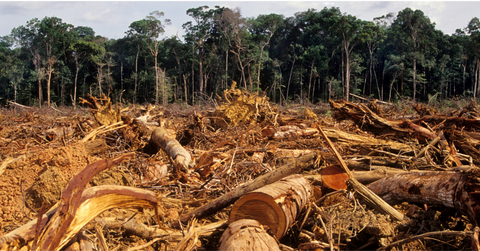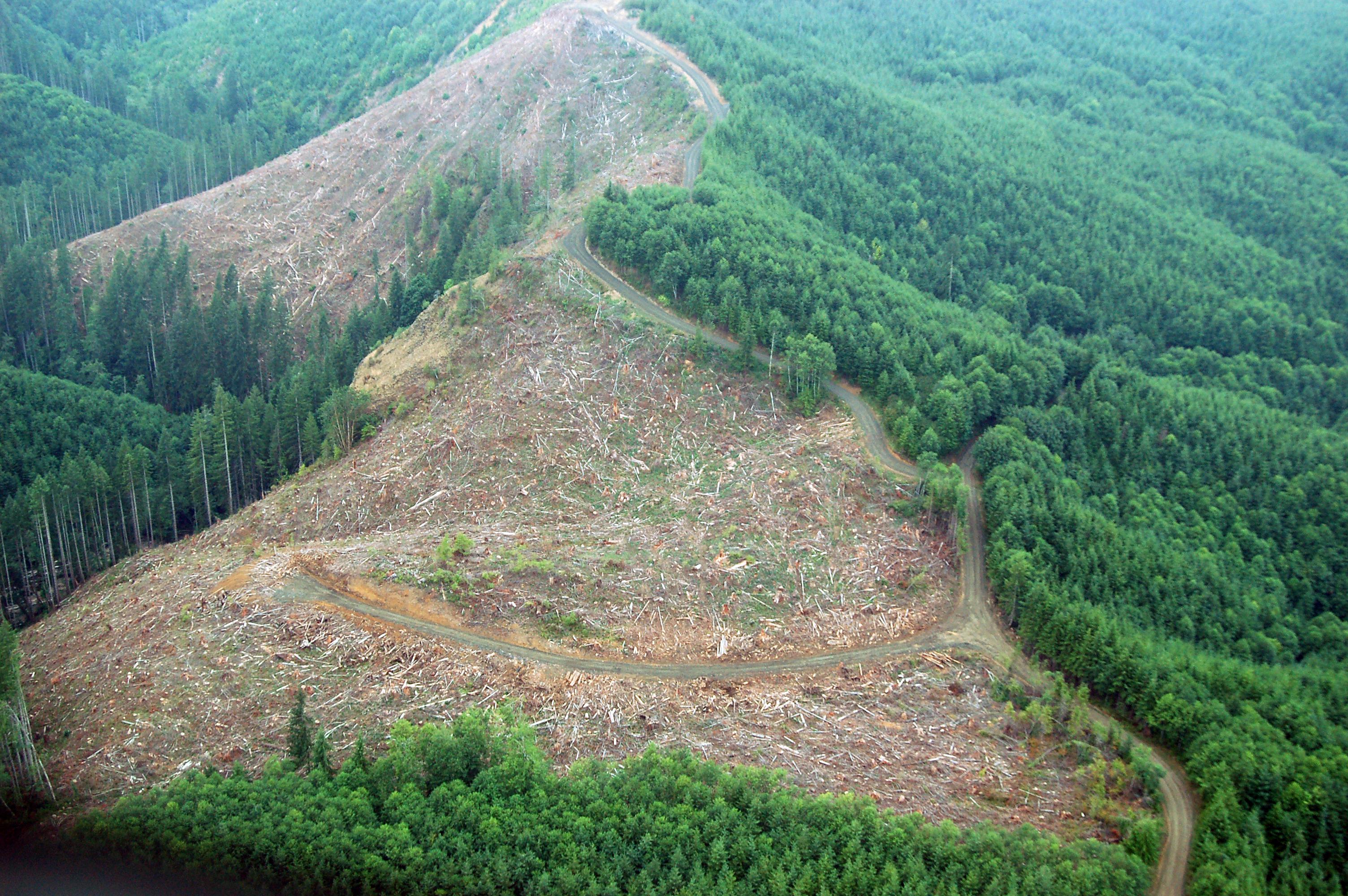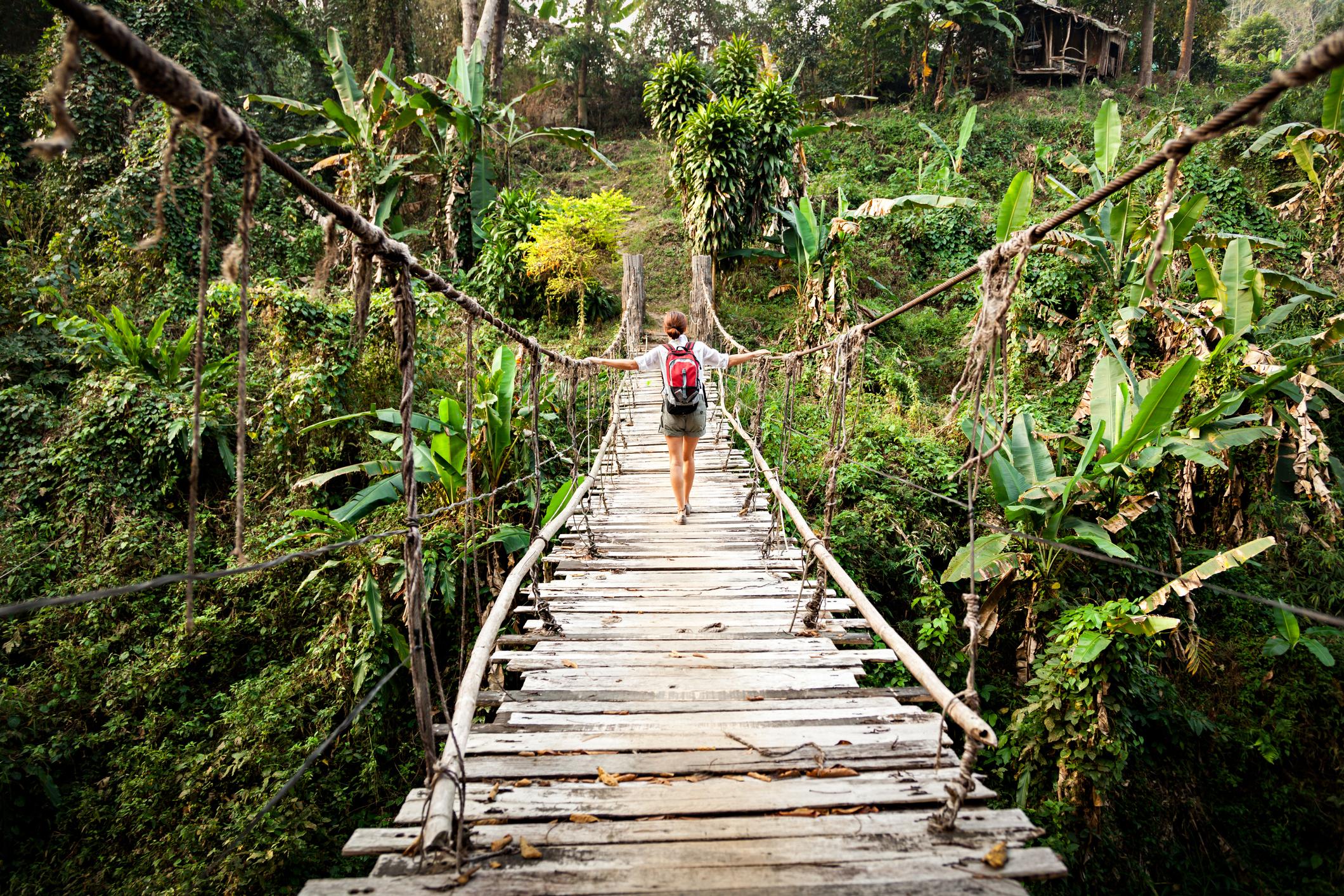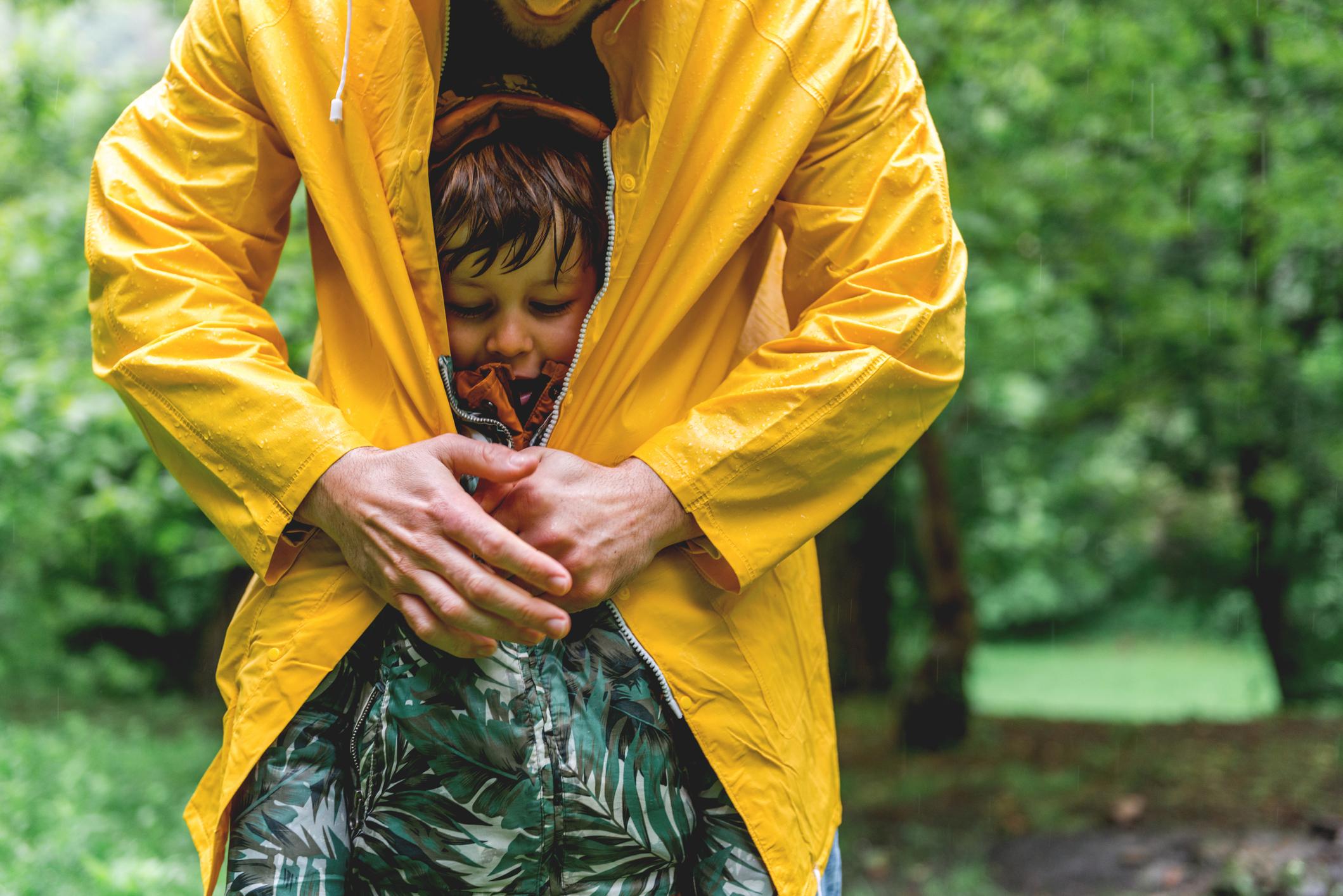Wondering Why Deforestation Is Such a Big Deal? Here Are the Facts
Updated April 23 2020, 1:28 p.m. ET

There’s a lot of buzz around deforestation, but also equal amounts of confusion about what it really is — and why it matters. Don’t worry! We’re here to break it down for you.
Deforestation is the purposeful clearing of forested land, as National Geographic explains. It has been happening around the world for thousands of years, which clearly alters landscapes and ecosystems everywhere. And actually, most of our planet was forested at one point. Can you imagine?
“Throughout history and into modern times, forests have been razed to make space for agriculture and animal grazing, and to obtain wood for fuel, manufacturing, and construction.”
It makes sense, to a certain extent. But where should the line be drawn, and what’s the situation like today?

Here are some key deforestation facts:
Consider these facts in thinking about the forests (or lack thereof) on the planet today.
- Forests cover an approximate 31 percent of land area on our planet, according to the World Wildlife Fund (WWF);
- More than 13 million people worldwide have a job in the forest sector;
- 41 million have a job that is related to the forest sector;
- People think of paper as the biggest driver for deforestation, but actually, agriculture drives more than 70 percent of deforestation in tropical and subtropical countries;
- 80 percent of all land-based species live in forests;
- The main cause of deforestation comes from illegal logging;
- Our planet loses more than 18 million acres of forests annually — or the equivalent to 27 soccer fields per minute;
As if these staggering statistics weren’t compelling enough, Conservation.org shares these hard facts and heartbreaking truths.

Tropical rainforests are especially at risk.
Today, the majority of deforestation actually happens in tropical rainforests. About 12 million hectares of tropical forest were lost in 2018 — the equivalent to 30 football fields per minute — the BBC reports.
And those lush, gorgeous landscapes hold an approximate 25 percent of the world’s carbon within their trees and other plant life. (Mind. Blown.)
“Forests also play a critical role in mitigating climate change because they act as a carbon sink — soaking up carbon dioxide that would otherwise be free in the atmosphere,” WWF shares.
According to Harvard Magazine, once burned, the built-up carbon is emitted into the atmosphere. “All of the vegetation that acted as 'carbon sinks' to absorb carbon disappears... Without rainforests, climate scientists warn, the global-warming consequences could be catastrophic.”
Cutting down trees affects the entire environment — not just the area around it.
Deforestation has many major (and way too often unforeseen) impacts on the environment. There’s soil erosion, water cycle disruption, greenhouse gas emissions, and biodiversity losses with every tree that is chopped, and the planet feels its impact.
Let’s take these point-by-point to understand their individual and shared importance.
Soil erosion: Okay, this is something we’ve never considered right off the bat when thinking of deforestation. But it’s real, and it’s important. Trees anchor soil in place, and when they’re chopped down, that soil is displaced. Soil erosion and suddenly displaced soil can lead to farming issues, clogged waterways, mudslides, and beyond.
Water cycle disruption: We all know that water gets evaporated — and that includes by trees. They release it into the atmosphere via extracted groundwater, it rains, reinvigorates the area, and the cycle begins again. But when there are no trees, there is no water cycle. And that means a climate change called desertification, leaving the land dry and at-risk for fire and loss of plant and wildlife.

Greenhouse gas emissions: As mentioned, trees absorb an incredible amount of harmful greenhouse gases including carbon dioxide and methane. They store it in their trunks and leaves, but once they’re displaced, the gas has nowhere to go — except for in the air and local habitat. As Sciencing.com reports, It is estimated that deforestation contributes as much as 30 percent to global greenhouse gas emissions each year.
Biodiversity loss: Though not necessarily the most harmful, this could well be the most heartbreaking impact of deforestation that there is. Plants and animals are adaptable, but it takes time. When entire ecosystems are annihilated, there’s no time or space for those species to adapt, recover, or survive. And it’s not just one species disappearing that makes the difference, but how others are reliant on their existence, which creates a chain effect.
“For example, if a small species of frog becomes extinct, it could affect populations of predators such as birds who rely on the frogs for food. Certain plants might rely on the birds to spread their seeds and might also suffer population losses. Because each piece of an ecosystem relies upon other pieces, one species loss can have far-reaching consequences for other species.”

Here’s how we can change things.
Fortunately, there are many ways we can all become involved in help to save forests worldwide, supported by global forces for good including Green Peace. They range from buying and working with like-minded companies to using recycled materials and making more informed food sources.
The more you know, the better — so many an informed choice, and make a difference!